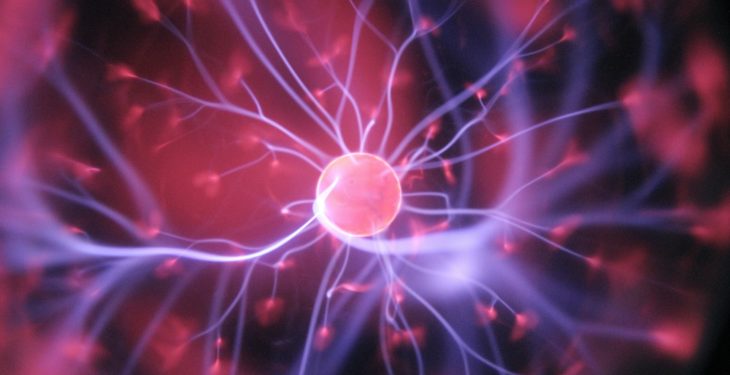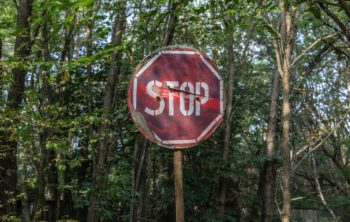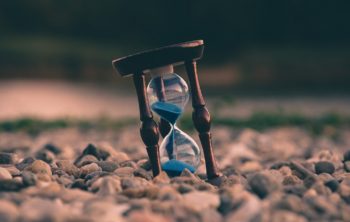Author’s note: I wrote this with curiosity in mind as to how the social landscape changed so drastically in a few months at the start of the pandemic in 2020, as well as a way to sort out my thoughts and feelings concerning the division that continues to plague us today.
Consequences of living too long in the state of a pandemic and how it alters the way we think
What has been so unique to witness at this juncture in timeline, is the shift in our attitudes and interpersonal behaviors as well as the rapid reorganization of societal norms in response to the pandemic.
While societal shifts on a global scale is not exclusive to this moment in history, it has been my first experience – and I believe the same for many others as well – where we’ve been able to witness and feel first hand, the dismantling of cultural idiosyncrasies that oversee normative behaviors, as well as a massive shift in personal and interpersonal values.
The amount of cultural gears that have been turned in order to reshape our social fabric are too many for me to account for in a coherent manner. However, there are modes of human behavior that we have been able to observe in individuals that I believe are at the core of these cultural shifts.
In my attempts of trying to make sense of the recent changes in societal norms, as well as the widespread division across society, I’ve come across a particular theory in psychology known as the Behavioral Immune System (BIS). The BIS was originally coined by Psychologist Mark Schaller, postulating that because the use of our immune system to fight off pathogens is metabolically too costly, humans evolved a set of psychological and behavioral prophylactic measures to decrease our chances of contracting illness and disease.
His theory seems to illuminate a fundamental quandary that has been preoccupying my mind for the last 1.5 years: how is it that the initial reactions to COVID-19 maintained credence over time, despite all of the new and better scientific information that has come out as time progressed? More importantly, there are behaviors that we can observe between healthy friends, family, and acquaintances, that under pre-pandemic circumstances would cause us to raise an eyebrow at the absurdity of it all.
I want to be careful when speaking about this, because the way we have witnessed individuals dig their heels into certain stances on the pandemic, cannot be fully explained by a singular psychological theory. There are so many more variables at play here, including but not limited to: ideologies, politics, big tech, legacy media, and of course every individual’s unique tolerance towards risk. What I am interested in, is how people became so entrenched in their stances so quickly – I believe that the activation of the BIS contaminated the way we haphazardly learned how to navigate the COVID-19 landscape.
Learning to Unlearn
There was a quote I came across a long time ago that continues to come back to me. It feels as though it might be one of those quotes that sheds direct insight on what life is all about. “We learn in order to unlearn.”
This concept of learning to unlearn, I believe, is core to self-improvement – whereby many of the repeated habits and patterns we commit are often a product of the experiences we have grown up with in life. The sometimes toxic, generational trauma, type of nurture that we grow accustomed to. Some habits may be good, but the ones that tend to get in the way of our growth are often the ones that leave us flabbergasted with life. Often we find ourselves questioning our self destructive behaviors.
In the same way, I believe that there are patterns and habits that are ingrained in our evolutionary DNA, that while encoded into us with the utility for survival, can get in the way of our individual paths towards being better humans. A straight forward example is that of our fight or flight response. Why does it have to be either or? Well it doesn’t always have to be – only it takes an individual who has mastered the art of overriding this response in order to articulate some form of verbal deescalation and conflict resolution.
As with the way our sympathetic nervous system is set up to achieve automated animalistic responses to our surroundings, so too do we have psychological responses that have been automated in us. There are fundamental psychological responses we manifest that are rooted in basic emotions such as fear, anger, joy, disgust, and the like. For example, when we are exposed to stimuli that evokes an emotion such as fear, we are more inclined to respond with behaviour that is more protective over our life.
Evolutionary ingrained psychological responses can also raise in complexity as we find ourselves in more complicated social situations. Whether it be the bystander effect, ingroup-outgroup models, group polarization – there are a host of psycho-social phenomena that occur as a result of human evolution. Our brains have been wired in ways to respond accordingly – there are seemingly best behavioral practices we subconsciously switch to, in order to decrease the likelihood of being a social outcast.
So to circle back to Mark Schaller’s work on the BIS, I think it’s important to understand it, so we can use the behaviors it provides that are helpful and discard the rest. Much like the bystander effect (the phenomenon where people are less likely to help in an emergency situation, and instead watch from afar because they believe somebody else will help), those who become educated about it, are less likely to succumb to it.
What is the Behavioral Immune System?
As stated earlier, the main reason that the BIS evolved was in order to adapt a behavioral defence system to decrease the chances of getting sick. The imperceptibility of viruses and bacteria made for a unique challenge, as the methods of transmission were beyond the realm of our comprehension until very recently. Humans found more survival success in adopting proactive behaviors that remove us from the vicinity of those who are sick.
So how has the activation of our BIS affected the lens through which we perceive the world? As with most animal behaviors, they are motivated by feelings or emotions (think hunger, apathy, anger, fatigue, and the like). In terms of the BIS, it is powered by disgust. This is an incredibly powerful emotion, and like every emotion, there are varying degrees to how we experience disgust.
Emotions live on a spectrum, and depending on the intensity of said emotion, it can manifest in certain behaviors. For more information on this, I recommend Dr. David Hawkins book Letting Go, as well Dr. Paul Ekman and the Dalai Lama’s project called The Atlas of Emotions. In terms of disgust, it can be experienced as dislike, aversion, distaste, repugnance, revulsion, abhorrence, loathing, and even anger (Ekman, 2022).
Disgust can be triggered via our senses, by the actions and appearances of others, as well as concepts and ideas. These three categories of triggers can give birth to a myriad of stimulus that people can find disgust in. The level of stimulus required to trigger a disgust response, of course, varies on the individual’s threshold for risk tolerance towards a perceived threat.
To this point, I need to highlight that the BIS isn’t just a system that an individual has or doesn’t have, but rather is a built in system as a result of our human evolution, where the system varies in strength across individuals (Schaller, 2016). Like other physiological and psychological occurrences amongst humans, there are genetic variabilities in the level of propensity that people have in regards to preoccupying thoughts of contamination, as well as perceiving something as a disease-threat even when it isn’t (such as hypochondria).
Driven by disgust
How does disgust shape our thoughts, behaviors, and tolerance towards others? If we start with disgust being triggered by our senses, the squeamishness that is elicited when we feel, smell, see, hear, or taste something that disagrees with us, has the power to immediately freeze us or make us turn away! This might be the most primal of human reactions, and much of it serves to protect us. We feel disgust strongest through our senses, because it means that the thing that elicited the disgust response has come far too close to our comfort zone (think bodily ejections, rancid foods, injuries, creepy looking insects).
In regards to the pandemic, we can observe disgust across the spectrum, whether it be avoidance of strangers, avoidance of somebody’s zone of breathing, hearing somebody cough or sneeze, donning gear that keeps us six feet apart at all times, touching elbows instead of shaking hands, the list goes on! Where things get more complicated are behaviors in regards to the appearance of others, as well as the ideologies that people hold.
Think about it like this: we live in an environment where we are bombarded by constant information that disease and threat is all around us. This heightened state of alarm demands our BIS to be on at all times – which means there is a level of disgust that we are always feeling. This then conditions our feelings of disgust to over-associate with people, activities, and behaviors, all which shouldn’t actually be of harm to us by any perceptible means.
When it comes to the psychology of learning, the more we are exposed to a trigger, the stronger that association becomes. Our constant exposure to what we come to understand as a threat (even though it isn’t) slowly gets in the way of, and eventually overrides our behaviors that once were normal, and shapes our behavior to act in a way that is subservient to the BIS.
Even though we have an inkling feeling that this new behavior might be odd, when we step outside into the world and see everyone else acting in a similar way, our behaviors suddenly become validated. The irrational becomes rationalized because of the perceivable cultural norms that have been adopted among the masses (I will leave it up to you to figure out what you might deem as irrational).
A consequence of disgust
There is also evidence that implicates disgust and its association with morality, codes of conduct, and other cultural norms. One such example that we can look at is the religious conservatism when it comes to sexual conduct. Sex in itself is an opportune moment for the transmission of pathogens (Schaller, 2016). By knowing this – an argument can be rationalized that the sanctity of health must supersede our carnal desires. Thus practices of sexual acts, as well as sexual preferences that fall outside the religious cultural norm, can elicit feelings of disapproval all the way to anger.
A consequence of public health messaging and the do’s and do not that surrounds the pandemic results in a relearning of what becomes right and wrong within our culture. In an atmosphere where we argue about the statistical risk of contracting a disease, have consistent updates on our phones about what the hospitalization numbers are, and having frequent briefings by authority figures on measures that we must take in order to “stay safe,” the norm becomes skewed, and thus the associations we make through the lens of disgust can become overblown. This may manifest in a clear response of dislike, revulsion, or loathing towards anybody who does not fall in line with what the current cultural norm is, when in fact there is no real threat whatsoever.
A clear example of this is the triggering responses we’ve been able to observe in mask wearing. Keep in mind, I’m not here to argue the efficacy of wearing a mask, but rather to make an observation about how perceived cultural norms shape our disgust responses. I’m sure everyone has seen or heard of a story of somebody tearing another individual down for not wearing their mask outside on the streets. At its core, why is it is so shocking? What is the behavior driven by? Concern? Hostility? Control? Disgust?
I can’t help but feel that the collective sentiment towards mask wearing is in major part driven by how universally adopted the behavior is within your immediate vicinity – an area of mask effect if you will. Case in point: if you live in an area with heavy public health measures and you’ve had the opportunity to travel elsewhere with more relaxed measures, you might have been able to notice a difference in general attitudes towards mask wearing. Spend enough time there, and perhaps you’ve found yourself letting down your guard and following suit to what the local norm is. How arbitrary is that?
What is important to note here is that when the BIS is in a heightened state for a prolonged period of time, our experience of what normal is, shifts to accommodate for the disgust that is operating in the background. To reframe this, those who live with pain for a long period of time, often forget what it feels like to be completely pain-free. Over time, they tend to lose their frame of reference to perceive their current experience in any other way. In the same way, might it be possible that we become blind to our behaviors that are rooted in disgust, because it has been in operation for so long?
Before you think too hard about your own reactions over the last few years, just know that the overcautious behaviors that many took is completely normal, and is embedded in the BIS’s response to the knowledge of increased risk infection. The system overshoots in order to avoid high cost errors (coined error-management) – of course this also means that we tend to make biased responses and actions to objects and people that pose no real risk at all. Schaller stipulates that when we make behavioral over-generalizations, the goal is to compensate for the possibilities of false-negative errors. What that means is that it pushes us to feel inclined to avoid things that might be a risk, even if they are actually benign – which is objectively unnecessary. We do this in the off chance that the benign is actually malignant. That is to say, better safe than sorry.
Which leads me into the territory of controversy: if we are overgeneralizing as a result of the BIS, and the BIS can be activated not just to perceivable symptoms of illness, but also by how people look (i.e. those who do not wear a mask), and how people behave (i.e. questioning vaccine efficacy or mandates) – how much have the feelings of disgust that motivates the BIS, encroached on the territory of judgment towards people who have chosen to deal with the pandemic differently?
A little bit on fear conditioning
Fear conditioning is a type of associative learning that pairs something neutral with something aversive (harmful) in order to achieve a response (Standford Medicine, 2021). In this model of conditioning, I would like to posit that the neutral stimulus being outwardly healthy humans is paired with an aversive unconditioned stimulus – the messaging of asymptomatic COVID-19. The conditioned response in turn leads the majority to feel distrust and fear of contracting sickness from everyone they cannot verify. This leads to a behavioral outcome of unwillingness to engage with individuals who aren’t in their social bubble.
So when we turn down social interactions on the grounds of fear of contracting COVID-19, even if it is unverifiable due to somebody being asymptomatic, the BIS makes space for us to rationalize this behavioral over-adaptation. In my eyes, this is a social pitfall that inevitably has lead us to some form of social-unplugging. When we overgeneralize (in this case to avoid substantially costly errors of contagion), we also lean into modes that allow our minds to access information as quick as possible. This leads to the use of stereotyping and other mental heuristics. The possibility of this being so socially destructive seems inherent and obvious, especially when COVID is so full of controversy, misinformation, confusion, and mixed messaging. The ambiguity of it all really distracts us from engaging in life and positive human interactions.
What has been interesting to me, is that humans have and always will be vehicles of transmission for a multitude of diseases. There has never been a time in life where this wasn’t a fact. The way in which people’s behaviors changed so quickly towards one another due to the background noise of the pandemic, despite the aforementioned fact, has been incredible to observe. If the BIS has the capacity to influence our responses to people and things that pose no real threat of infection (Schaller, 2016) – what I can conclude through the lens of the BIS is that the disgust response, while originally evolved for pathogenic-avoidance, has disrupted our rationality towards outwardly healthy individuals. I am not really sure how long it will take for majority of people to come back from this type of sentiment towards one another.
Have our behavioral immune systems managed to tear us apart?
How much have our feelings of disgust affected our ability to rationally discuss the pandemic response, the statistics and science behind COVID-19, mandates, lockdown measures, and god forbid, the vaccines?
Social ingroup and outgrouping can be observed in relation to the BIS – observable intergroup attitudes and the fragmentation of our society in the last few years due to different view points seem to give this theory a lot of weight.
If the ingroup can be considered as the vaccinated, and the outgroup unvaccinated, there becomes a very obvious means to socially outcast one another. Say the ingroup follows what has been deemed the cultural norm, the outgroup will be perceived as a threat for very obvious reasons. Outgroup members are less likely to follow ingroup norms and behaviors – many of which have been adopted to avoid illness. This is a very primal way of thinking, since an ingroup-outgroup mode of thinking ensures that there are social barriers to pathogen transmission.
In the same way, this type of over-heightened mode of thinking has bled into other territories such as mandates and lockdown measures. As a standalone, these are political measures as opposed to vaccines which should have been a health measure. Unfortunately, the camps of vaccinated vs. unvaccinated which came first in the mission to cure COVID timeline, have also adopted other camps (i.e. pro-mandates vs. anti-mandates). All of these group identities have seemingly made way for a “psychologically unique form of prejudice associated with the behavioral immune system” (Schaller, 2016, p.214).
All that said, it seems that activation of the BIS may lead to a greater propensity for people to follow what the majority does. In small tribes where we have evolved to count on one another because our likelihood of surviving improves exponentially, cultural norms are dictated for the greater good. Those who are not observant of such norms, often face some sort of penalty.
If you will allow me to be skeptical here, this can be a potential weakness in our evolutionary psychology, as the willingness to adhere to cultural norms, while a good thing in small tribes because we have had the opportunity to validate everybody in person – can be used against us in a large scale society, where everyone is seemingly anonymous. The BIS has the capacity to allow for conformity without questioning our own behaviors as a result of disgust. While this may be a stretch, what is true is that the BIS is activated during moments of stress and feelings of vulnerability. Wu & Chang’s work on how the immediacy of a disease can sway individuals to adopt more conformist views appears to me to have some troubling consequences. If we are subject to feelings of anxiety, disgust, vulnerability, and have also succumbed to group-think, how many good decisions can we make and have we made under the influence of these feelings?
One bleak example are the many stories of lost friendships, family-feuds, and burned bridges as a result of disagreement in regards to COVID-19. The BIS is known to have mechanisms that can encourage the adoption of socially conservative beliefs, which promote social exclusivity, tradition, and negativity toward outgroups (Terrizzi, Shook & McDaniel, 2013). The division in our society today is almost palpable, so perhaps there is some truth to this theory.
It appears to me that cultural norm is far too easily dictated in present time, especially through means of social media. Has our mental fortitude evolved in a way to be equipped to handle the rapid changes in our cultural norms? Can this be a window into why we as a collective are consistently fatigued by the constant inundation of new information regarding the pandemic?
If the pandemic response and its social milieu is the cultural norm that we have today, what does social progress look like? At every monumental stage in human civilization, there has always been a push for social advancement – whether it be beneficial for the masses or not is another issue. Perhaps the desire by certain people to bring back the pre-pandemic normal is not a popular reality to others, as the cultural norms of that time just wasn’t set up in a way that was beneficial to them. So how do we parse through the decisions we have made in the last few years that have most certainly been affected by the BIS? How do we collectively arrive at a reality where we can operate as rational humans again? And how do we agree on a consensus regarding pre-pandemic cultural norms that we should absolutely conserve?
References
- Paul Ekman Group. (n.d.). Disgust. Retrieved January 28, 2022. https://www.paulekman.com/universal-emotions/what-is-disgust/
- Schaller, M. (2016) The behavioural immune system. The Handbook of Evolutionary Psychology, 1, 206-224
- Stanford Medicine. (n.d.). Fear Conditioning. Retrieved January 28, 2022. https://med.stanford.edu/sbfnl/services/bm/lm/bml-fear.html
- Terrizzi, J. A., Shook, N. J., & McDaniel, M. A. (2013). The behavioral immune system and social conservatism: A meta-analysis. Evolution and Human Behavior, 34, 99–108
- Wu, B., & Chang, L. (2012). The social impact of pathogen threat: How disease salience influences conformity. Personality and Individual Differences, 53, 50–54






Thoughtful piece. IMHO in addition to #BIS, the rippling #anxiety has physical underpinnings.
obesity ≈ metabolic syndrome (body & mind)
• ⅓ morbidly obese, ½ diabetic, ⅔ obese, 90% metabolic syndrome
=> a lot of undiagnosed mental illness. It’s not just rampant pandemic anxiety & fear or the road rage, etc., those are symptoms of a general malaise. This is how civilizations collapse.
I don’t disagree with you Mani – the general public’s reaction is only allowed to go as far as its average. If the average citizen’s health (physical & mental… maybe even spiritual) has declined enough that an anxious reaction will appear as normal, than that’s what will pass as acceptable. The optimist in me would like to see the flip side to your view on civilization collapse. I’d like to think that those who can see the contrast will embody a positive push that will shape an even stronger future generation.
Hi Cal,
I only just stumbled across your blog while searching information on doing a 10 day water fast (again). I just read that blog and also this one here on the BIS. What a phenomenal view! I agree with you wholeheartedly! As someone who got the first vaccine (singular, because it was the Jansen, didn’t need more than one at the that time) purely because it was the norm and I was setting sail around the Med on our newly bought sailing vessel, I felt like I was willing to take that risk to avoid risk, but as time progressed and we passed through various countries with varying BIS and cultural norms, I became more concerned about the possibility of health complications from repeated vaccination. When calls came for children to be vaccinated, that is what cemented my decision to refuse any further vaccinations until enough time had passed to prove safety and efficacy. We, my family of 5, have survived this pandemic all having contracted Covid but with varying degrees of residual effects. My husband had long Covid, he had asthma for a year, on and off, but the rest of us have been fine. My two younger kids have not been vaccinated, my eldest who is in college has been taking every shot and booster because of where he lives and the cultural norms there (Hong Kong). My husband is fine now, he’s back to flying as a pilot after 2 years without a job. One of the concerns of returning to flying (besides the diabolical pay) was being mandated the vaccine. Fortunately that is no longer mandated, hell, it’s practically forgotten that Covid still exists! Many friends lost jobs, were banned from family members funerals, missed out on invites to Christmas gatherings…it was cruel and mind boggling! Your blogpost made all that make sense! Thank you. I hope we’ve all come out the other side of it with lessons learned, but I don’t know…it’s like that one family problem we all sweep under the rug and silently agree not to discuss or apologize about.
Good for you for taking an educated stance for your children! It’s a tough call in the current social climate – I think it is an incredible task to be a parent in this day and age. The balancing act required of an adult today, where going against the current can be the potential end of a necessary job to feed the family, versus being the role model and beacon of truth for your children so that you can instill the right values and morals… what a task indeed! — I read somewhere that if the values and morals that a parent would like their kids to have are not instilled before their teenage years, than it probably isn’t going to happen for them.
How did your fast go? Did you do it? If you did, I hope you enjoy your new body 😉